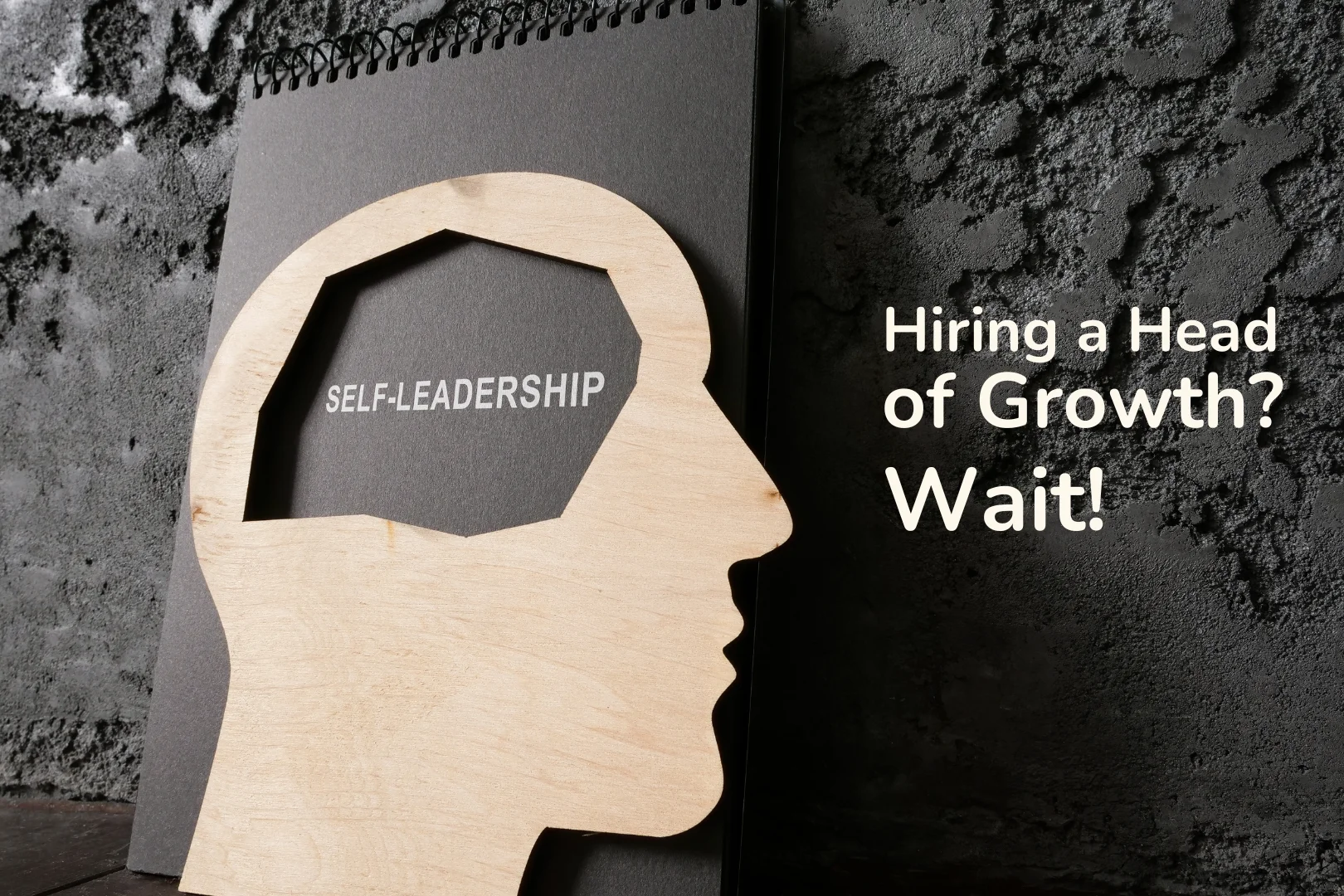Why hiring a Head of Growth might not be the right move for your business… just yet
Hiring a Head of Growth too early can waste time, money, and equity. Founders should own growth until they validate product-market fit and establish a repeatable growth model. Only then does it make sense to hire a growth leader- ideally a hands-on builder focused on key metrics, not vanity titles.
Should You Really Hire a Head of Growth Right Now?
If you’re a startup founder, you might believe hiring a Head of Growth is the next logical step in scaling your business. But what if it’s actually a mistake? Hiring too early can lead to wasted resources, misaligned expectations, and even equity loss before fully understanding your own growth mechanics.
Before making this critical decision, let’s break down when it makes sense to hire a Head of Growth, what to look for in the right candidate, and how to set your startup up for sustainable scaling.
Founders Own Early-Stage Growth
In the early days of your startup, growth isn’t something you delegate—it’s something you own. Handing over growth responsibilities too soon means risking a premature equity giveaway and outsourcing a process that only founders can truly master.
A Head of Growth isn’t necessary until you’ve validated product-market fit and tested an initial growth model. If you rush this decision, you risk hiring someone who won’t have the tools to succeed, leading to inefficiency and lost resources.
Instead, founders must focus on answering key growth questions first:
- How will we attract users? (Acquisition)
- How will we keep them engaged? (Retention)
- How will we monetize their activity? (Revenue & Expansion)
Without these answers, even the best Head of Growth will be working in the dark.

The Growth Leader Myth: Why Many Startups Get It Wrong
1. Growth Leaders Are Rare and Expensive
Top-tier growth leaders are in high demand. They combine data-driven decision-making, experimentation, and cross-functional skills—a rare mix. Many are already working with established startups or serving as consultants, making full-time hires difficult and costly.
2. Growth Requires a Unique Skillset
A true Head of Growth isn’t just a marketer. They come from product, engineering, or strategy backgrounds, prioritizing key metrics like Customer Lifetime Value (LTV), Customer Acquisition Cost (CAC), and Retention Rates—not vanity metrics like website visits or ad impressions.
3. Startups Often Aren’t Ready for a Growth Hire
A great growth leader doesn’t create growth from scratch—they accelerate an existing engine. If your startup hasn’t achieved repeatable growth yet, hiring a Head of Growth too soon will likely lead to frustration and failure.
Case Study: The Costly Growt
Hire Mistake
One startup founder spent €40,000 hiring a corporate marketing veteran to run paid ad campaigns. The hire looked great on paper—but their big-budget, enterprise-scale approach wasn’t suited for an early-stage startup. The experiments failed, cash burned, and the founder had to freeze operations for months.
Lesson learned? The founder needed to own growth first. Only after testing, iterating, and understanding their own growth model could they make the right hire.
When Is the Right Time to Hire a Head of Growth?
Before hiring, ensure you have:
- A validated growth model with predictable customer acquisition and retention.
- A repeatable method for acquiring users that needs optimization, not discovery.
- A clear understanding of key growth metrics and the ability to measure success.
If you can check all three boxes, a Head of Growth can help scale what’s already working. If not, focus on building your foundation first.
Key Metrics Over Resumes: What to Look for in a Growth Hire
Don’t be fooled by flashy titles or LinkedIn growth claims. Instead, evaluate candidates based on their understanding of key SaaS metrics:
- What are the top 5 growth metrics for my business? (e.g., activation, retention, CAC, LTV, Net Dollar Retention)
- Which metrics should we prioritize in the next 6 months, and why?
- Can you give an example where you identified and fixed a broken growth funnel?
If a candidate struggles with these questions, they’re not the right fit.
Who Should You Hire First? The Case for a Growth Generalist
Instead of looking for a high-profile name, seek out a builder—someone who can:
- Test hypotheses and iterate quickly.
- Execute data-driven strategies.
- Build scalable growth systems from scratch.
Hire Based on Your Growth Model
- If your business is product-led, consider hiring a Growth Product Manager to drive retention.
- If your business is marketing-led, hire a Growth Marketer with expertise in acquisition and demand generation.
- If your business is sales-led, you may need a Revenue Operations Specialist to optimize lead conversion.
Startups often overpay for external talent, overlooking internal team members who already understand the business and customers. In some cases, working with a growth boutique agency is a more flexible, cost-effective approach than hiring a full-time Head of Growth too soon.
Conclusion: Growth Starts with Founders, Not Hires
Growth isn’t something you can delegate in the early days—it’s something you need to own, test, and refine yourself.
The best growth leaders don’t create demand; they scale existing demand. As a founder, your job is to build that initial engine. Only once you’ve validated your growth model should you consider hiring someone to take things to the next level.
Final Takeaways:
✅ Don’t hire too early—own growth yourself first
✅ Validate your growth model before bringing in an expert
✅ Hire a builder, not a big name, to match your business needs
✅ Use key metrics, not resumes, to assess growth hires.
By following these principles, you’ll avoid costly hiring mistakes and set your startup on the right path to sustainable scaling.
.svg)
